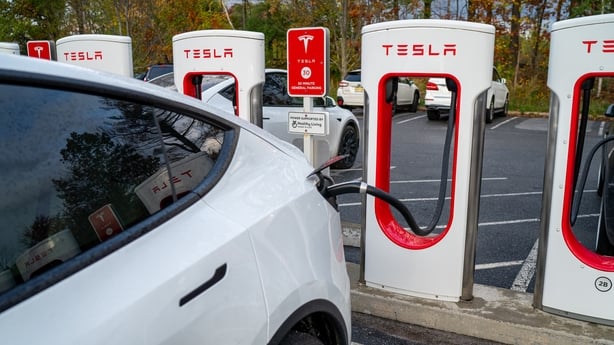China has announced a plan for a major development of car battery swapping stations around the country - a move that challenges big international car companies committed to their own technology.
Swapping your depleted electric car battery at a designated charging point has always been promoted as a way to either circumvent a lagging public charging system or to supplement it.
It's also way to enable people who cannot install chargers at their properties - those without off-street parking, for example - to drive electric cars with minimal difficulty.
However, car manufacturers have pressed ahead with the development of their own individual battery packs in the belief they differentiate their cars from those of competitors.

China has now taken a completely contrary view and this week announced plans to establish some 24,000 swap stations across the country within three years.
The companies involved in the plan are all Chinese, with no indication that any foreign manufacturer plans to follow suit. However, many of the world’s biggest car manufacturers have invested heavily in China and have enjoyed significant success there. Also, as Reuters reports, if the Chinese government decides to force companies down this route then they run the risk of reducing their profits from sales in China if they don’t comply. This would have a major impact on their ability to make the transition to fully-electric production.
Battery swapping allows drivers to replace depleted packs quickly with fully charged ones, rather than plugging the vehicle into a charging point.
The Reuters report says battery swapping could help mitigate the growing strains placed on power grids as millions of drivers charge up, yet specialists caution it can only take off in a big way if batteries become standardized industry-wide.
If China is successful in making swapping successful on a large scale, though, the shift could undermine the business models of global brands like Tesla, Volkswagen and General Motors, whose EVs are designed for and powered by their own proprietary batteries and, in Tesla's case, its own charging network.
Some experts argue that big global manufacturers might be left with little choice other than to agree to Chinese requirements.
Furthermore, if Beijing ultimately mandates swappable batteries "and starts saying, 'okay, the only car you're allowed to produce is one that meets the standard' . . . you would have to comply to stay in business" in China, says John Helveston, assistant professor at George Washington University's School of Engineering.
Some advocates of swapping are looking beyond China.
Battery swapping "is too convenient, too economical and too logical for this not to happen at scale in Europe and the United States," said Levi Tillemann, head of policy and international business at San Francisco-based battery swap startup Ample.


